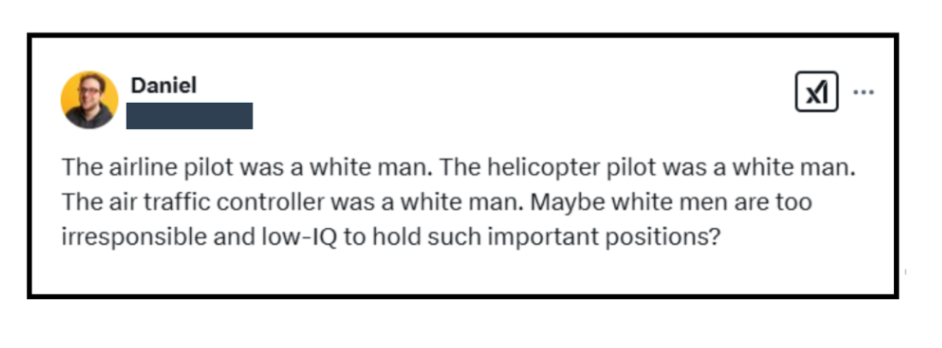In the wake of the recent plane crashes in Washington, D.C., and Philadelphia, the nation should have been united in grief, concern, and a collective effort to understand what went wrong. Instead, the immediate response from political leaders and commentators became yet another battleground in the culture war that has come to define our discourse. This kind of reaction is not just disappointing; it’s harmful. Here’s why:
1. It Erases the Victims
When tragedies happen, the first priority should always be the victims and their families. These crashes were devastating accidents that resulted in a major loss of life. Yet almost immediately, the discussion shifted away from those affected and toward political point-scoring. The day after the American Airlines flight collided with a military Blackhawk bombardier helicopter, President Trump took to the White House Briefing Room to provide critical updates to the nation on the crash and the federal response.
While initially honoring those lost and committing to working to ensure similar tragedies don’t happen again, the President of the United States soon pointed to his predecessor’s diversity, equity, and inclusion (DEI) policies—suggesting without any publicly available evidence—that unqualified pilots may have been responsible. This was before any real investigation was even complete. This was seen by many, including some family members of the victims as insensitive.


Meanwhile, his critics on the left—seemingly just to oppose him—assumed that the pilots were white men, eager to frame any discussion on the tragedies in their own narrative. The result was that instead of focusing on the victims, the causes of these crashes, and ways to improve aviation safety, public discourse was hijacked once again by politics. The real tragedy here is that the victims who lost their lives were also lost in the debate. Their deaths were overshadowed by petty political posturing. To state the obvious, they deserved better.
2. It’s Divisive and Superficial
By framing aviation safety as a debate of identity rather than a technical issue, we undermine serious discussions about how to prevent future crashes. When leaders and media personalities rush to assign blame based on political narratives, it deepens societal divides and prevents constructive conversations. The reality is that aviation safety should not be a partisan issue. It should be about rigorous training, strict safety standards, and ensuring that all pilots—regardless of background or race or gender—should be fully equipped to handle the demands of their job. The moment we make it about identity, we risk distracting from real solutions.

Instead of bickering over ideological talking points, the national conversation should be centered on actionable solutions: What led to these crashes? Were they mechanical failures, human error, regulatory oversight, or something else? Are there gaps in training, certification, or maintenance that need to be addressed? Aviation should always be an industry where the highest standards of competence and safety are non-negotiable, free from both ideological scapegoating and knee-jerk defensiveness.
These are the discussions that matter. These are the questions that, if answered, can actually prevent future tragedies. At BridgeUSA, we believe in fostering discussions that move beyond the toxic cycle of outrage and reaction. We don’t solve problems by shouting at and blaming each other—we solve them by engaging in thoughtful, constructive dialogue.
Tragedies like these should remind us of our shared humanity, not deepen our political divides. If we truly care about safety, about lives lost, and about preventing future crashes, we need to rise above partisan distractions and focus on solutions. So let’s reject the impulse to make everything about identity politics and instead commit to a more meaningful conversation—one that actually leads to safer skies for everyone.

